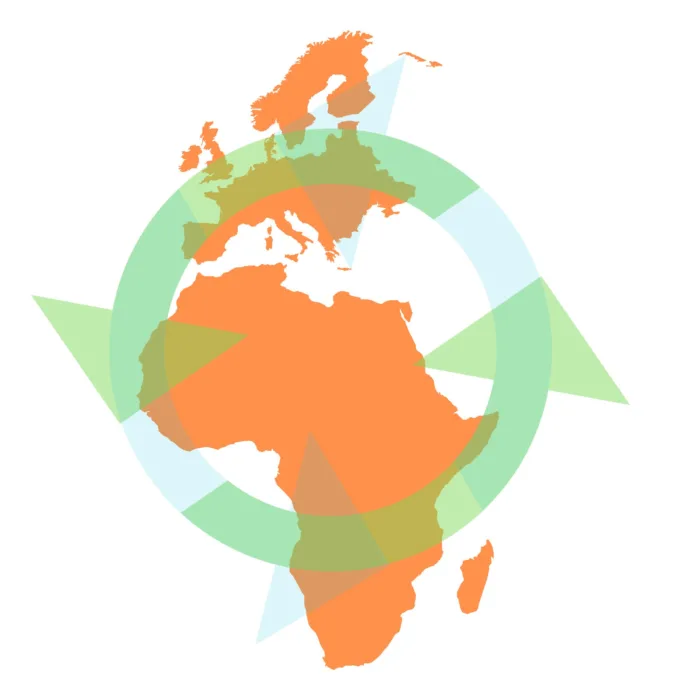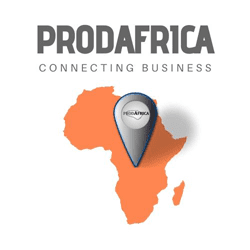How to Export from Africa to Europe: A Step-by-Step Guide for African Businesses.
Exporting from Africa to Europe requires careful planning and compliance with various regulations, especially under trade agreements such as the Economic Partnership Agreements (EPAs). This guide explains the complete export process in a basic but illustrative way, including essential documents, estimated timeframes, costs, taxes, and tariffs. By using a practical example of a Ugandan coffee exporter, we outline each stage of the export journey, from market research to final distribution in Europe.

Exporting from Africa to Europe involves a series of well-defined steps, especially when taking advantage of trade agreements like the Economic Partnership Agreements (EPAs) between African nations and the European Union (EU). Below is a comprehensive guide that outlines the process, from required documentation to estimated timeframes and costs, using a practical export example (Information and costs can vary significantly).
1. Trade Agreements between Africa and Europe
The European Union has signed Economic Partnership Agreements (EPAs) with various African regions. These agreements allow African exports to benefit from reduced or zero tariffs, provided they meet specific rules of origin.
Key Documentation under EPAs:
- EUR.1 Certificate: This certificate is crucial for proving that products exported from Africa are originating from a beneficiary country under the EPAs, allowing for tariff exemptions or reductions.
- Detailed information on the EUR.1 Certificate can be found on the European Commission’s official page.
2. Export Process from Africa to Europe
Here is a detailed step-by-step example of how an African business can export to Europe, including timeframes, costs, and required documents.
Example: Fictitious Company – Organic Coffee from Uganda S.A.
- Product: Organic Arabica Coffee
- Country of Origin: Uganda
- Destination: Hamburg, Germany
Step 1: Market Research and Regulatory Compliance
- Estimated cost: $500 – $1,000 (for basic market research and compliance analysis)
- Estimated time: 7-14 days
- The company needs to assess the European market to identify opportunities and ensure their product complies with EU regulations. For coffee, this includes meeting phytosanitary and labeling requirements.
Key Regulatory Requirements:
- EU Phytosanitary Regulations: Information on plant health controls for importing agricultural products here.
- Organic Certification Regulations: If the coffee is certified organic, it must comply with Regulation (EU) 2018/848. More details here.
Step 2: Obtaining the Certificate of Origin (EUR.1)
- Estimated cost: $100 – $200
- Estimated time: 2-3 days
- The EUR.1 Certificate is essential for claiming preferential tariff rates under the EPA. It is issued by the Ugandan customs authorities and proves the coffee’s origin.
Step 3: Logistics Preparation and Shipping
- Shipping cost (maritime): $1,500 – $2,000 (for a 20-foot container)
- Estimated maritime transit time: 21-30 days (from Mombasa, Kenya, to Hamburg, Germany)
- The coffee is shipped from Mombasa port, with an estimated transit time of 3-4 weeks. The shipment must comply with EU packaging and labeling standards.
Step 4: Cargo Insurance and Financing
- Insurance cost: $100 – $500
- Estimated time: 1-3 days
- The company arranges insurance to protect the cargo during transit. Additionally, a letter of credit is used to ensure payment from the buyer once conditions are met.
Step 5: Phytosanitary Inspection
- Estimated cost: $200 – $300
- Estimated time: 5-7 days
- Before export, Ugandan authorities issue a phytosanitary certificate, confirming that the coffee complies with EU health standards.
Step 6: Customs Clearance in Europe
- Customs broker cost: $200 – $400
- Estimated time for customs clearance: 3-7 days
- Once the coffee reaches Hamburg, a customs broker submits the necessary documentation (EUR.1 Certificate, phytosanitary certificate, commercial invoice, etc.) to German customs authorities.
EU Taxes and Duties:
- VAT (Value Added Tax): In Germany, the VAT on imports is 19%, calculated on the CIF (Cost, Insurance, and Freight) value, meaning the value of the goods plus shipping and insurance costs.
- Tariffs: Without the EUR.1 Certificate, tariffs for products like coffee range from 5% to 9%. With the EPA and EUR.1, tariffs are 0%.
Step 7: Distribution in Europe
- Storage and distribution cost: $1,000 – $2,000
- Estimated time: 7-14 days
- Once the goods are cleared, the coffee is delivered to a distributor in Germany for storage and distribution to retailers and coffee shops.
End-to-End Process Overview
- Market research and regulatory compliance: 7-14 days
- Origin certification (EUR.1): 2-3 days
- Maritime shipping: 21-30 days
- Phytosanitary inspection: 5-7 days
- Customs clearance in Europe: 3-7 days
- Distribution: 7-14 days
Total estimated time from start to finish: 45-65 days
Cost and Fees Overview
- Market research and compliance: $500 – $1,000
- Origin certification (EUR.1): $100 – $200
- Maritime shipping: $1,500 – $2,000
- Cargo insurance: $100 – $500
- Phytosanitary certification: $200 – $300
- Customs broker in Europe: $200 – $400
- Storage and distribution: $1,000 – $2,000
Total estimated cost: $3,600 – $6,400
Additional European Taxes and Fees:
- VAT in Germany: 19% of CIF value (the value of the goods plus shipping and insurance).
- Tariffs: 0% with the EUR.1 Certificate. Without it, tariffs may range from 5-9% depending on the product.
Then…
Exporting from Africa to Europe typically takes between 45 and 65 days, from market research to the distribution of products in Europe. Using trade agreements like EPAs allows African businesses to benefit from reduced or eliminated tariffs, as long as the EUR.1 Certificate is presented. Compliance with EU phytosanitary and customs regulations, along with managing VAT and logistics costs, is crucial for success in the European market.
While costs vary based on the volume of goods and shipping routes, this example provides a clear guide for African businesses looking to enter the European market effectively.
Contact with ProdAfrica, team@prodafrica.com

Team Prodafrica
team@prodafrica.com